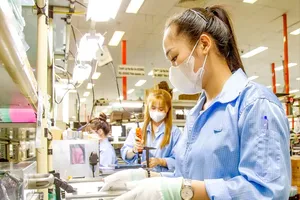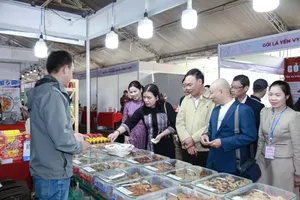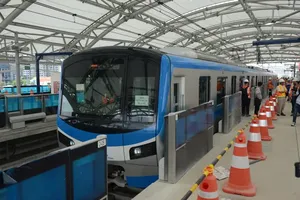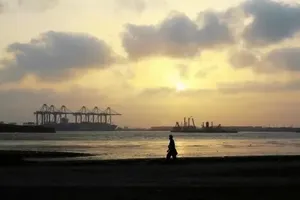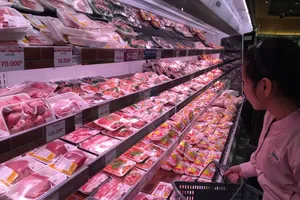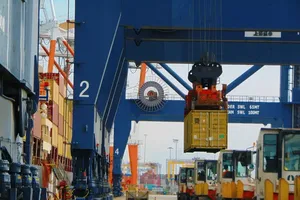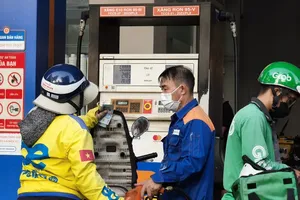Asso. Prof. Dr. Ngo Tri Long, an economic expert and former Chairman of the Market Price Research Institute under the Ministry of Finance, shared many of his thoughts and views in a talk with Saigon Investment.
JOURNALIST: - Sir, there is an opinion that it is time to let go of the PPS Fund to regulate gasoline price, as an indirect way to save businesses. What is your opinion on this matter?
Dr. NGO TRI LONG: - Vietnam has now deeply integrated with the world, as our economic policies are fairly open and large, so it is understandable that the domestic market is being affected by fluctuations from the external market. The increase in domestic gasoline prices is no exception. Once we have integrated with the world, we have to follow the common price in the world market, and not isolate ourselves. The domestic oil price depends on the world oil price, and this is bound to happen.
However, in the face of fluctuation from outside, we still have tools to reduce sudden shocks and regulate the market. Many other countries do not have a PPS Fund, and only Vietnam can use this fund for this particular product. When the world gasoline price increases, we will use the PPS Fund to reduce gasoline price to a certain extent, and avoid a major shock to the market. This is also a tool for the Government to serve both the purpose of social security as well as control inflation. However, the PPS Fund is only used to reduce shocks, and not for long-term intervention, so it can only be seen as an urgent but temporary solution that cannot be maintained for a long time to save businesses.
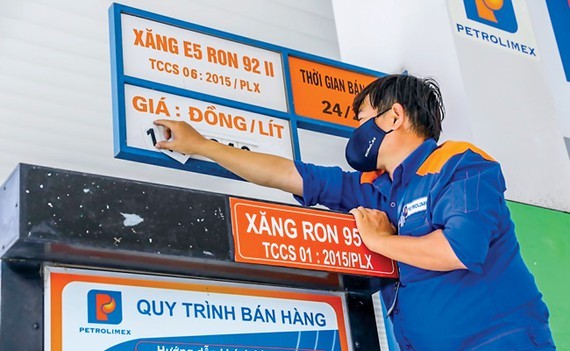
We do not yet know if it is appropriate to use the PPS Fund at this time. In fact, there are periods when the Government released the support fund for about VND 1,000 per liter, despite the sharp increase in world gasoline prices, in order to control inflation according to the target set by the National Assembly. Currently, the world gasoline price has spiked back to the highest level in the last two years and is expected to increase further in coming time, so the State does not have to immediately discharge the fund, but it needs to be considered as appropriate from time to time.
- Sir, do you think the domestic gasoline price will continue to increase?
- According to forecast, the world petroleum price is still quite complicated, in which an upward trend is inevitable. The increase in world oil prices is due to two reasons. First, many countries around the world have begun to restore their economies and focus more on reviving production, hence essential input materials such as gasoline will increase. Second, some countries that supply a lot of oil to the world market today also want to take advantage and push up oil prices to make a profit, by controlling the level of production and supply to the market. These two reasons will cause the world gasoline price to rise, which can continue to last into the next year.
The fact that the domestic gasoline price has increased more slowly than in the world market in recent times is due to the use of the PPS Fund. Now there is not much room for the stabilization fund, if it is released now when the world gasoline price is still high, then it will be very difficult to control. So we need to take a precautionary view. I think the current way of managing the domestic petrol price can be considered as reasonable and still maintain the stability of the market at this time.
- Sir, will high gasoline prices affect Government efforts to control inflation in the last two quarters of this year?
- On a larger scale, if there are no factors that arise too suddenly, the average inflation control for the whole year 2021 will be about 4%, still under the control of the Government. Currently, inflation is caused by many factors combined, depending on both domestic and international factors, including commodities such as gasoline, electricity, and coal, which are input factors. The State has now controlled electricity prices, specifically by not raising electricity prices this year, although this year the capacity and electricity output of hydroelectric plants is very alarming due to drought, which may lead to limited supply.
The most worrisome factor at present is the unpredictability of world petroleum prices. Experts predict that it will continue to increase to USD 100 per barrel. Not only petrol, but there are also still many potential risk factors for inflation control coming from the world and from domestic situation. Speculation and hoarding of essential commodities can put pressure on prices of some raw materials in the international market, thereby affecting the domestic market through imports. While on the other hand, the Covid-19 pandemic continues to remain complicated, which may affect the local price of very many commodities in affected localities.
- Thank you very much.



